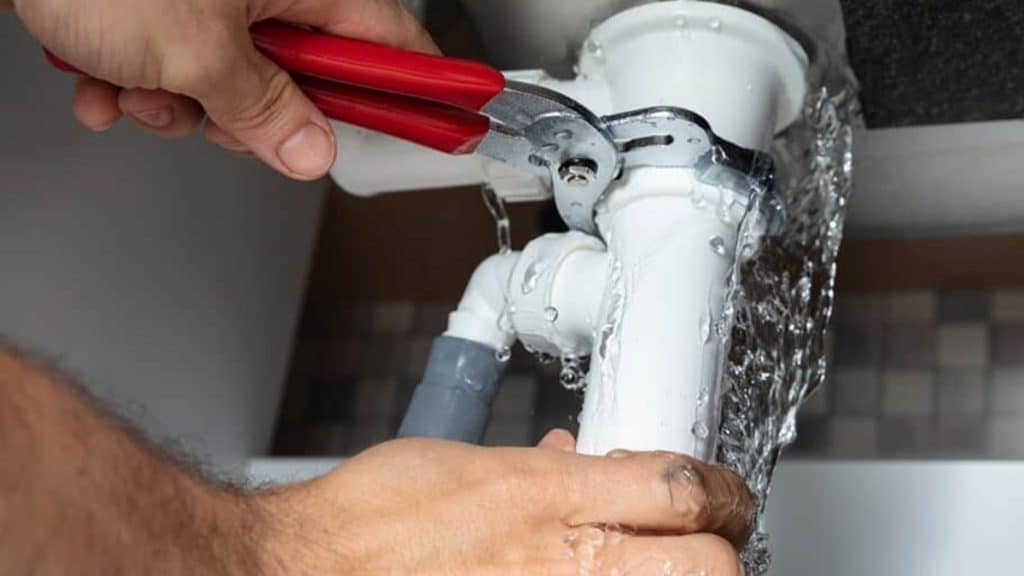Homeowners must understand the importance of knowing what qualifies as a plumbing emergency. A plumbing crisis involves scenarios that could cause significant water damage, like burst pipes, extensive leaks, or overflowing toilets. Immediate attention is necessary to avoid substantial damage to your property and potential health risks. Recognizing the signs of a plumbing emergency, like sudden water pressure loss or unexplained water pooling, can help you act quickly.
In such cases, contacting an emergency residential plumber is essential. These professionals are equipped to handle urgent plumbing problems efficiently and effectively. They can rapidly identify and repair the problem, reducing harm and returning your plumbing system to its usual state. Their prompt intervention ensures your home remains safe and functional, even during unexpected plumbing crises.
Major Plumbing Emergencies to Watch Out For
Burst Pipes
A burst pipe, often caused by frigid temperatures, can quickly cause significant water damage. It can release numerous gallons of water every minute, causing flooding and damage to floors, walls, and personal items. To prevent further damage, turn off the main water supply and seek professional assistance. Being alert to indicators like changing water pressure, unusual sounds, and sudden puddles in your house is very important. Prompt response can aid in reducing the harm and expediting the restoration.
Sewer Backups
A sewer blockage is a plumbing crisis that poses health hazards, leading to unpleasant odors and possible exposure to bacteria. It occurs when the main sewer line becomes obstructed, causing wastewater to flow back into the house. Signs include blockages in drains, gurgling noises, and water flowing back into different drains. To prevent further pollution, avoid using plumbing fixtures and seek expert assistance to remove the obstruction and clean the affected areas.
Water Heater Failure
A faulty water heater can cause a lack of hot water, which is necessary for staying clean and relaxed. Some typical indications are water gathering near the heater, fluctuating water temperatures, or unusual sounds emanating from the heater. A water heater failure can disrupt your daily routine, affecting everything from showers to dishwashing. Regular maintenance can help prevent these emergencies, but it’s also important to recognize when the unit is nearing the end of its service life. You can check out this resource for more on modern water heaters and issues. Understanding the different types of water heaters available can also help you decide when it’s time for a replacement.
Leaking Faucets and Fixtures
Although a slow drip may not appear pressing, it can result in considerable water wastage and harm in the long run. A dripping tap can result in losing numerous gallons of water within twelve months. As per the EPA, repairing leaks in household water systems can lead to a 10% reduction in water bills for homeowners. The consistent dripping can lead to water stains and potential structural harm if not taken care of. Discovering and repairing leaks quickly can stop minor problems from turning into significant issues. Make sure to check your plumbing fixtures often for any signs of leaks, like moisture under sinks or the sound of water running, even when fixtures are not in use.
Actions to Take Right Away During a Plumbing Crisis
- Shut off the water supply: Knowing where your home’s main shut-off valve is located can save you from extensive water damage. Ensure all household members know how to turn off the water supply in an emergency.
- Contain the damage: Use buckets, towels, and even tarps to minimize the spread of water. Quick action to mop up or contain water can prevent it from seeping into floors and walls, reducing the overall damage.
- Call a professional: Contacting an emergency plumber is crucial for a quick and permanent solution. Attempting DIY fixes for significant plumbing issues can often worsen the situation, so it’s best to leave it to the experts.
Preventive Measures to Avoid Plumbing Emergencies
It is always more advantageous to prevent than to cure. Consistent upkeep and prompt fixes can help avoid many plumbing crises. Being proactive can lower the chances of expensive repairs caused by severe plumbing issues.
- Insulate pipes during colder months to avoid freezing: Adequate insulation can help prevent pipes from freezing and bursting in winter. This straightforward precaution can prevent the inconvenience and cost of handling burst pipes.
- Regularly inspect and maintain water heaters: Preventive maintenance can detect possible issues before they escalate into major problems. Performing routine maintenance duties such as tank cleaning, pressure relief valve inspection, and system flushing is crucial for prolonging the life of your water heater.
- Don’t ignore minor leaks: Immediately address the problems to prevent more serious issues from arising. A small leak, no matter how small, can lead to considerable harm and increased water expenses. Consistently check all faucets, toilets, and pipes for any indications of leakage.
